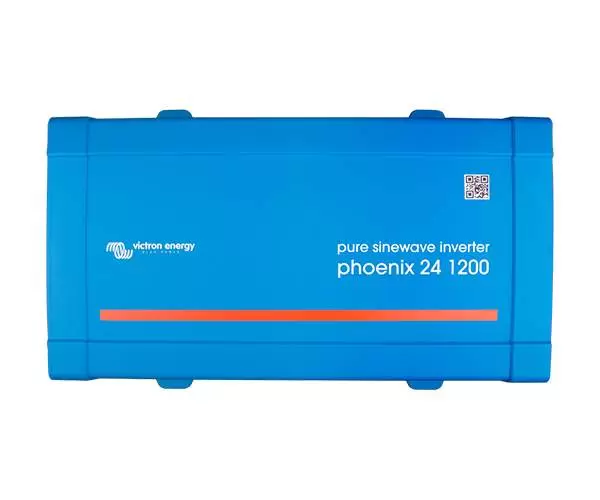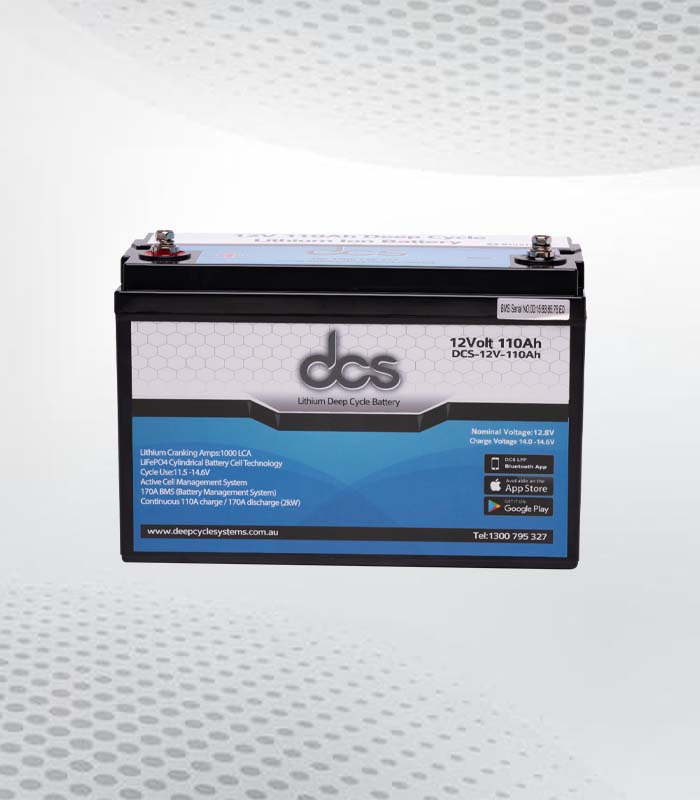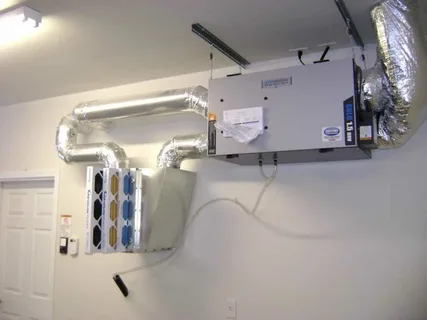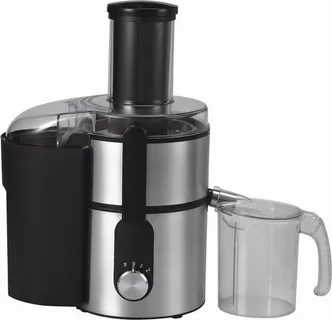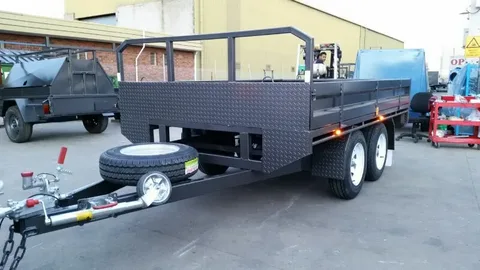Embarking on adventures at sea or in a caravan requires reliable power solutions to keep your journey smooth and enjoyable. Whether navigating the open seas or exploring the countryside, having an efficient inverter solar for a caravan can make all the difference. In this guide, we will outline twelve crucial points for choosing the right Marine Inverter, ensuring your travels remain powered and uninterrupted.
Understanding Marine Solar Inverters
Marine solar inverters play a critical role in converting the direct current (DC) produced by solar panels into alternating current (AC), which is used by most onboard appliances. These inverters are designed to endure the unique challenges of marine environments, such as saltwater corrosion and extreme weather conditions. When choosing a marine solar inverter, it’s essential to consider its efficiency and the type of waveform output it provides.
Pure sine wave inverters are typically preferred as they deliver cleaner and more stable energy, which is particularly important for sensitive electronic devices. Additionally, the inverter should be compatible with your existing solar panel setup to ensure seamless integration and optimal performance.
Benefits of Marine Solar Inverters
Choosing a marine solar inverter can tap into clean, renewable energy power, significantly reducing dependence on traditional fossil fuels. This results in lowered operational expenses and a smaller environmental footprint. Furthermore, solar inverters provide the autonomy to remain off-grid for extended periods, offering more opportunities to explore remote and pristine locations.
Another notable benefit is the quiet operation of solar systems compared to noisy generators, enhancing the tranquillity of your marine adventures. Additionally, with fewer moving parts, solar inverters generally require less maintenance, ensuring a hassle-free power solution. This makes them a practical and eco-friendly choice for any nautical journey.
Key Features to Look for in Marine Solar Inverters
Look for marine solar inverters with a high-efficiency rating to maximise the energy converted from solar panels. Choose pure sine wave inverters for cleaner and more stable power, which is crucial for sensitive electronics. Ensure the inverter is robust and durable, with protective features like overvoltage and short circuit protection. Water resistance is essential for marine environments, so opt for models specifically designed to withstand saltwater and harsh weather conditions.
An easy-to-read display can help monitor performance and diagnose issues quickly. Compatibility with your current solar panel setup is also vital for seamless integration. Some advanced models may offer remote monitoring and control, providing convenience and flexibility in managing your power system. Opt for a reputable brand known for quality and reliability to ensure a dependable power source for your adventures.
Choosing the Right Size and Capacity
When selecting the appropriate size and capacity for your marine solar inverter, assess the power requirements of all onboard appliances and devices. Create a comprehensive list of each item’s wattage and consider their simultaneous usage to determine your total energy consumption. Choosing an inverter with a capacity at least 25% higher than your calculated needs is advisable. This additional margin accounts for future expansions and unexpected power demands, ensuring consistent performance. Properly sizing your inverter helps maintain energy efficiency and prolong the life of both the inverter and connected equipment.
Installation Tips for Marine Solar Inverters
Select a location that offers good ventilation to prevent overheating. Use only marine-grade cables and connectors, which are corrosion-resistant and ensure efficient power transmission. Secure all electrical connections to avoid energy loss and potential hazards. Mount the inverter on a stable surface, away from direct sunlight and moisture, to extend its lifespan.
Ensure the inverter is easily accessible for monitoring and maintenance. Follow the manufacturer’s installation guidelines closely to optimise performance and safety. Additionally, it’s advisable to employ proper fuses and circuit breakers to protect the inverter and connected appliances from electrical faults. Properly installed, your marine solar inverter will provide reliable and efficient power for your adventures.
Maintenance and Troubleshooting Caravan Inverter
Regularly inspect your caravan solar inverter for dust and debris, especially around ventilation areas, to ensure efficient cooling. Periodically check all electrical connections for tightness and signs of corrosion. Use a multimeter to verify voltage output and ensure the inverter operates within specified parameters. Check for tripped circuit breakers or blown fuses if the inverter fails to power appliances. Ensure the solar panels are clean and unobstructed to maximise energy production.
Refer to the manufacturer’s manual for error codes and troubleshooting steps. If persistent issues arise, consult a professional technician to avoid potential damage to the inverter or connected devices. Regular maintenance and prompt troubleshooting will help maintain the reliability and efficiency of your Caravan Inverter during your travels.
Caravan Solar Inverters Explained
Caravan solar inverters convert the DC generated by solar panels into AC power suitable for use in caravans. They are designed to be compact and efficient, fitting seamlessly into the limited space available. Unlike marine solar inverters, these inverters must endure road vibrations and variable weather conditions experienced during travel. Additionally, caravan solar inverters should provide stable and reliable power for various appliances, enhancing the comfort and convenience of your mobile lifestyle. Compatibility with existing solar setups is crucial to ensure optimal performance and energy efficiency.
Benefits of Caravan Solar Inverters
Caravan solar inverters have revolutionized travel for adventurers seeking comfort and convenience on the road. By utilizing renewable energy, these systems allow travelers to power essential appliances without relying on conventional power sources. This not only reduces fuel costs but also promotes environmental sustainability, making your travels more eco-friendly.
The Benefits of Quiet Operation
One of the standout features of solar energy systems is their silent operation. Unlike traditional generators that can create noise pollution, caravan solar inverters function quietly, enhancing your travel experience, especially in serene natural settings. Imagine camping under the stars, listening to the sounds of nature instead of a loud generator.
Minimal Maintenance and Hassle-Free Power
With fewer mechanical parts than conventional power sources, solar inverters require minimal maintenance, offering a hassle-free solution for energy needs. This reliability allows travelers to focus on enjoying their adventures without worrying about power outages or equipment failures.
Extended Off-Grid Travel
The autonomy provided by caravan solar inverters enables extended off-grid travel, allowing you to explore remote locations without the constant worry of access to external power sources. Whether you’re camping in a national park or navigating the backroads, solar energy systems ensure you have a reliable and efficient power supply, making them ideal for eco-conscious adventurers.
Embrace the freedom of solar-powered travel and enhance your caravan experience today!
Important Features of Caravan Solar Inverters
When choosing a caravan solar inverter, opt for portable and lightweight models, making installation and handling easier. Ensure the inverter features overload protection to safeguard your devices against power surges. High efficiency is critical for maximising the energy harvested from your solar panels. Look for inverters that support multiple devices simultaneously to cater to your various energy needs. User-friendly interfaces and easy-to-read displays can simplify monitoring and adjustments.
Additionally, consider inverters that offer remote monitoring capabilities, allowing you to manage your power system conveniently from a distance. Durability is also crucial, as the inverter must withstand road vibrations and varying weather conditions. Opting for a reliable brand known for quality ensures you receive a dependable energy source for your travels.
Accurately Sizing Your Inverter for Caravan
Accurately sizing your caravan solar inverter is crucial for efficiently meeting your energy needs. A well-sized inverter ensures optimal performance and enhances the longevity of both the inverter and your connected appliances.
Calculate Your Energy Needs
Begin by calculating the wattage of all appliances you intend to power. List each device you plan to use, such as lights, refrigerators, and charging devices, and note their wattage. This information is usually found on the appliance’s label. For example, a typical refrigerator may consume around 100-200 watts, while LED lights may use about 10 watts each.
Estimate Total Energy Consumption
Next, consider these appliances’ duration and simultaneous usage to estimate your total energy consumption. Multiply the wattage of each appliance by the number of hours you plan to use it daily. If multiple devices are used simultaneously, add their wattages to determine the peak load.
Allow for Future Growth
Opt for an inverter with a capacity at least 25% higher than your calculated needs. This extra capacity accounts for future expansions, such as adding more appliances or unforeseen power surges, ensuring consistent performance. For instance, if your total calculated load is 1,000 watts, choose an inverter rated for at least 1,250.
By following these steps, you can ensure that your Inverter for Caravan meets your energy needs effectively while avoiding the risk of overloading the system. Properly sized inverters enhance energy efficiency and prolong the life of the inverter and connected appliances.
Installation and Setup for Caravan Solar Inverters
When setting up your caravan solar inverter, it’s vital to ensure proper placement and secure installation to maximise efficiency and safety. Position the inverter in a well-ventilated location and away from direct sunlight to prevent overheating. Use vibration-resistant mounts to secure the inverter, minimising movement during travel. Utilise marine-grade cables and connectors for all electrical connections to withstand environmental stressors and maintain efficient power transmission.
Follow the manufacturer’s instructions for wiring and configuration to ensure compatibility and optimal performance. Implement proper fuses and circuit breakers to protect the system from electrical faults. Additionally, ensure the inverter is easily accessible for monitoring and maintenance tasks. Proper installation will enable your caravan solar inverter to deliver reliable power throughout your travels.
Maintaining your Inverter Solar for Caravan
Regular maintenance of your solar inverter for a caravan ensures its longevity and reliability. Begin by routinely cleaning the exterior and ventilation grilles to prevent dust and debris buildup, which can cause overheating. Inspect the wiring for any signs of wear or corrosion, and tighten any loose connections. Check the battery terminals for corrosion and clean them if necessary. Verify that the inverter’s cooling fan operates correctly and replace it if you notice any malfunction.
It’s also wise to periodically update the inverter’s firmware if updates are available, ensuring you have the latest features and bug fixes. Keep a record of any maintenance performed and schedule regular check-ups to catch potential issues early. By adhering to these practices, you will ensure your inverter solar for caravan operates at peak efficiency, providing consistent and dependable power for your adventures.
Conclusion
Choosing the right caravan or Marine Inverter is essential for powering your adventures effectively. By understanding the differences between these two types of inverters, assessing your power needs, and considering key features like efficiency, size, and durability, you can ensure a reliable energy source for your journeys. Regular maintenance and proper installation further enhance the longevity and performance of your inverter system. With a well-selected inverter, you can enjoy the freedom of off-grid travel, harnessing renewable energy to improve your experiences on the water or the road. Embrace sustainable power solutions and embark on your adventures with confidence!
FAQ
1. What is the difference between marine and caravan solar inverters?
Marine solar inverters are designed to withstand harsh aquatic environments, including saltwater exposure and extreme weather conditions. They typically have robust protective features and deliver pure sine wave output, which is ideal for sensitive electronics. In contrast, caravan solar inverters are built to endure road vibrations and variable weather, focusing on compactness and portability while providing reliable power for mobile appliances.
2. How do I determine the right size for my solar Inverter for Caravan?
List all appliances you plan to power and their wattage to determine the appropriate size. Calculate the total energy consumption, considering simultaneous usage. To account for future expansions and prevent overloading, select an Inverter for Caravan with at least 25% higher capacity than your calculated needs.
3. Can I install a marine solar inverter myself?
While some DIY enthusiasts may opt for self-installation, a good understanding of electrical systems is essential. If you need more experience, hiring a professional installer is advisable to ensure proper placement, secure connections, and adherence to safety standards. This helps prevent potential issues and ensures optimal performance.
4. How often should I maintain my Marine Inverter?
Regular maintenance is crucial for longevity and efficiency. Inspect your solar Marine Inverter at least twice a year, checking for dust buildup, loose connections, and signs of corrosion. Keep the inverter clean and ensure that the cooling systems are functioning properly. Keeping a maintenance log can help you stay organised and proactive.
5. What should I do if my Caravan Inverter isn’t working?
Check for tripped circuit breakers or blown fuses if your Caravan Inverter fails to power appliances. Verify that the solar panels are clean and unobstructed. Consult the manufacturer’s manual for troubleshooting guidance on error codes. If issues persist, contact a professional technician to avoid potential damage to your system.
